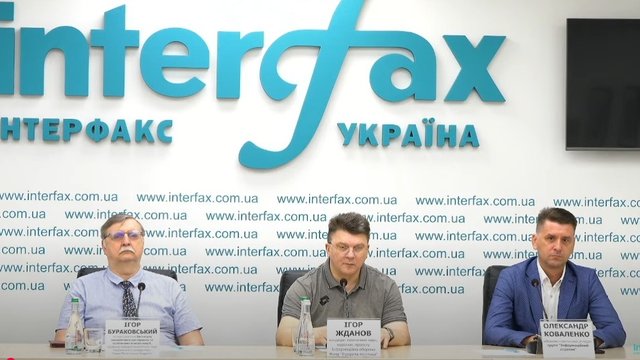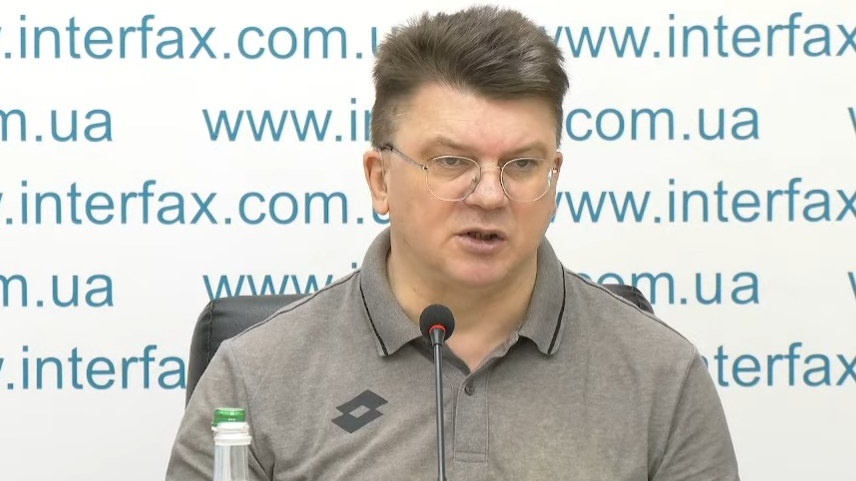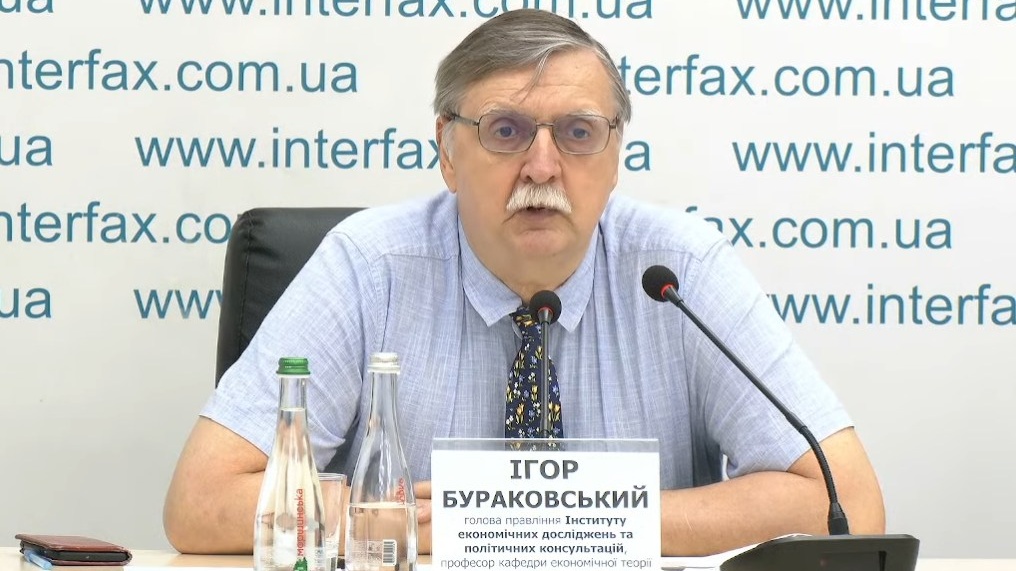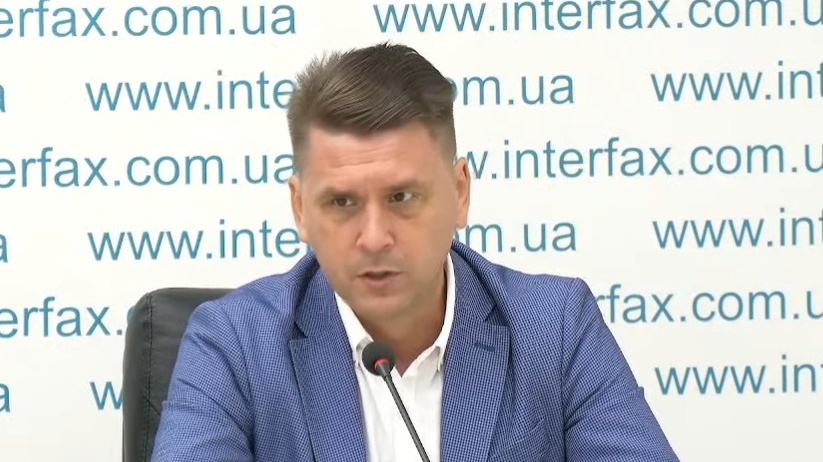Experts call for society’s militarization, renewal of state's security architecture

In the context of the ongoing aggression of the Russian Federation and geopolitical changes, political figures and experts are calling for the systematic militarization of society, strengthening the state's defense capabilities, and the formation of a new model of security guarantees.
This opinion was expressed during a discussion on the topic "34th Independence Day of Ukraine: Will the state's sovereignty be defended?" at the press center of the Interfax-Ukraine news agency on Friday.
According to Ihor Zhdanov, PhD in Political Sciences, Head of the Information Defense Project of the Open Policy Foundation, ATO and Armed Forces of Ukraine volunteer Ihor Zhdanov, militarization should become a key element of state policy. It is about forming respect for the military and veterans, increasing the social status of military personnel, ensuring a decent level of remuneration, and creating a modern Armed Forces of Ukraine equipped with high-tech weapons and equipment.

"There should be a militarization of our society. This is respect for the military, respect for veterans, the creation of a cult of the army, high social status of officers and soldiers with an appropriate salary. The creation of modern armed forces of Ukraine, equipped with ultra-modern weapons and equipment. The fight against corruption, because this is a minus for our taxes and a minus for our budget equipment for the army," he emphasized.
Separately, Zhdanov emphasized the need to develop fundamental scientific education and create its own program complex, which will allow Ukraine to effectively respond to global challenges.
He added that during the negotiations in Washington, the possibility of providing Ukraine with security guarantees similar to Article 5 of the NATO Washington Treaty was raised for the first time - this refers to the potential deployment of allied military contingents on the territory of Ukraine and the provision of direct military support in the event of new aggression.
According to preliminary information, the US does not plan to involve ground troops, but is considering an air component - the creation of a no-fly zone for Russian aircraft and missiles. China and the Russian Federation have opposed this initiative.
It is emphasized that any agreements on a peaceful settlement or territorial compromises must be legitimized by the Ukrainian people - through a referendum or elections.
The economic situation in Ukraine was commented on by Doctor of Economics, Chairman of the Board of the Institute of Economic Research and Policy Consulting Ihor Burakovsky.

"Traditionally, from my point of view, the economy is very important, but today the fate of Ukraine is being decided at the front. The entire economy must be subordinated to the military defense of Ukraine, because if we lose militarily, then, in principle, any further talk about economic development or about any other things makes practically no sense," he said.
The Ukrainian economy demonstrates resilience, but this resilience is the result of significant efforts and remains vulnerable; in wartime, economic policy requires realistic planning and efficient use of resources.
Considerable attention during the discussion was paid to the issue of external financing. As noted, Ukraine is critically dependent on international aid, which requires not only active work with partners, but also a demonstration of the effective use of the funds received. According to experts, transparency and effectiveness in this area can be a guarantee of further support from donors.
Burakovsky expressed cautious optimism: according to the Institute for Economic Research and Policy Consulting, business and enterprises demonstrate a high level of adaptation to war conditions, while entrepreneurs name labor shortages, physical security issues, and the need for financial support among the key problems.
The issue of energy security was separately raised. Due to the loss of control over the Zaporizhzhia NPP, the consequences of the Kakhovka HPP explosion and regular attacks on energy infrastructure, Ukraine is forced to look for new models of electricity production and transmission. It was noted that the transport system is operating at the limit of its capabilities, which creates additional risks for exports and imports. Digitalization has become an important factor in economic and military stability, while the need to strengthen cybersecurity is growing, which requires systematic work at the state level.
In the context of European integration, Ukraine continues to prepare for the opening of negotiation chapters with the European Union. Experts emphasized that the integration process has not only economic but also security significance, especially given the changing approaches of the EU itself to global and regional challenges.

Military-political observer of the Information Resistance group Oleksandr Kovalenko noted that Ukraine gained independence in 1991 peacefully, but the following decades were marked by the gradual loss of military-industrial potential, which, in his opinion, became one of the factors of Ukraine's vulnerability to Russian aggression. At the time of the collapse of the USSR, Ukraine possessed a significant arsenal of weapons, including nuclear weapons, strategic aviation and tens of thousands of armored vehicles. During the 1990s and early 2000s, a significant part of this potential was utilized, sold off or withdrawn from combat duty.
The lack of a systematic policy to preserve the defense potential led to the fact that Ukraine faced the events of 2014 and 2022 without proper military capabilities, Kovalenko emphasized. At the same time, despite limited resources, the Armed Forces of Ukraine, with the support of international partners, were able to restrain the offensive actions of the Russian Federation and significantly exhaust its combat potential.
In this context, he stressed the importance of the development of the Ukrainian military-industrial complex, which, according to the participants in the discussion, is demonstrating positive dynamics. Arms production is growing, and the Defense Forces of Ukraine are receiving modern equipment that allows them to effectively counter the aggressor.
Supporting the army and defense industry should become not only a strategic goal, but also a key priority of state policy. In his opinion, not only the end of the war will depend on this, but also Ukraine's ability to form its own position in the international dialogue, and he expressed his belief that it is stability, technological modernization, and political subjectivity that will allow Ukraine not only to preserve its independence, but also to ensure it for decades to come, Kovalenko emphasized.










